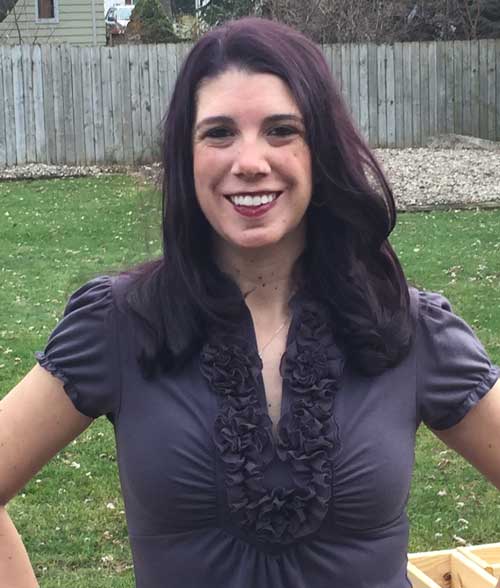Editor’s note: In a time of dramatic change and challenge in public schools, teachers increasingly have made their voices heard regarding policies of the U.S. Department of Education under Secretary Betsy DeVos. Jennifer Warner-Leja, a family and consumer sciences teacher at East Rockford Middle School, offers the following personal commentary on key issues for schools and students today. Readers are encouraged to respond, including other teachers who may have differing views.
Educating students in core academics is imperative. However, that does not negate the importance of what often tends to be the underlying issues that educators continue to encounter in their classroom. These same issues also may incline towards the ignorance of policymakers. While we continue to focus on academics, graduation requirements, and content standards and benchmarks, we are turning a blind eye to the whole student.
What do I mean by the whole student? The whole student goes beyond core academics and helps learners to focus on their mental/physical/social health; social media security; the opportunity for further education through interest exploration in electives; and adult skills such as financial management, problem-solving, critical thinking and time management.
Our society continues to exacerbate the issues that impact the whole student — obesity, social media predators/bullying, mental health (including suicide attempts and awareness) — and government officials appear to be ignoring this reality. Understandably and commendably, U.S. Education Secretary Betsy DeVos endorsed and supported Michigan in passing its plan under the federal Every Student Succeeds Act (ESSA) last year. That plan, as summarized by the Michigan Department of Education, includes the following statement:
“It (the ESSA) has a well-rounded and whole child focus. Academics in the core subjects, as well as access to the arts, libraries, and physical education are key. Physical, social, and emotional health and support, with assistance from counselors, social workers, and health professionals also are included in the state’s commitment.”
This one statement is a start; however, it alone will not change the current state of our students in the classrooms. Funding, initiatives, and proactive professional development among many other necessary preemptive steps will be needed to allow this act to grow roots in this regard. While these updates and this specific statement is commendable for Michigan and in respect to Secretary DeVos, it seems a bit negated when we consider that her agenda also includes privatization and a voucher system.

A Difference of Bottom Lines
Educating the whole student has the bottom line of generating the best education we can for each and every student no matter their race, socioeconomic status, or intellectual ability. This is the core of education, and following such will improve our future generations without bias.
Privatization and the voucher system, on the other hand, has the bottom line of financial gain. It should not be ignored that this agenda has been attempted with similar initiatives and failed. These attempts included organizations such as the Gates Foundation (the small school initiative in the early 2000s, followed by their charter school initiative), and The Walton Family Foundation (charter schools and school of choice).
The evidence of failure (from their own privately hired firms) included increasing the achievement and socioeconomic gap in schools, and racial segregation. Having an agenda of privatization and the voucher system seems to create a large disconnect between the impact of those initiatives and the admirable advantages Michigan has established through the ESSA and its updated components.
So, my question: How does Secretary DeVos intend to help educate the whole student in Michigan, and furthermore across the nation? Is she willing to set aside her platform agenda of privatization and the voucher system, in order to continue her support and advocacy for worthy programs such as the ESSA? If she is not willing to set those initiatives aside, does she realize that the advocacy of educating the whole student becomes just a statement?
Without her continued advocacy, no matter what programs are implemented, facets of reality will only continue to perpetrate the issue of the whole student not being educated, and schools will continue to ignore the blatant struggles our youth deal with on a daily basis. If those are ignored, does it really matter how many years of math a student has? If we as educators do not provide the best opportunity for every student to be successful in all aspects of life, will not students face further struggles that prevent them from using that core academic education?
While the updated ESSA and its components have stepped in this worthy direction — and should without hesitation continue moving forward — one cannot help but wonder how advocacy and support from Secretary DeVos will be implemented beyond just her signature. This is due to the fact that there is support for initiatives such as privatization and the voucher system, despite its research-based negative impact on schools and, most importantly, students.
Which is the polar opposite of educating the whole student.
CONNECT









